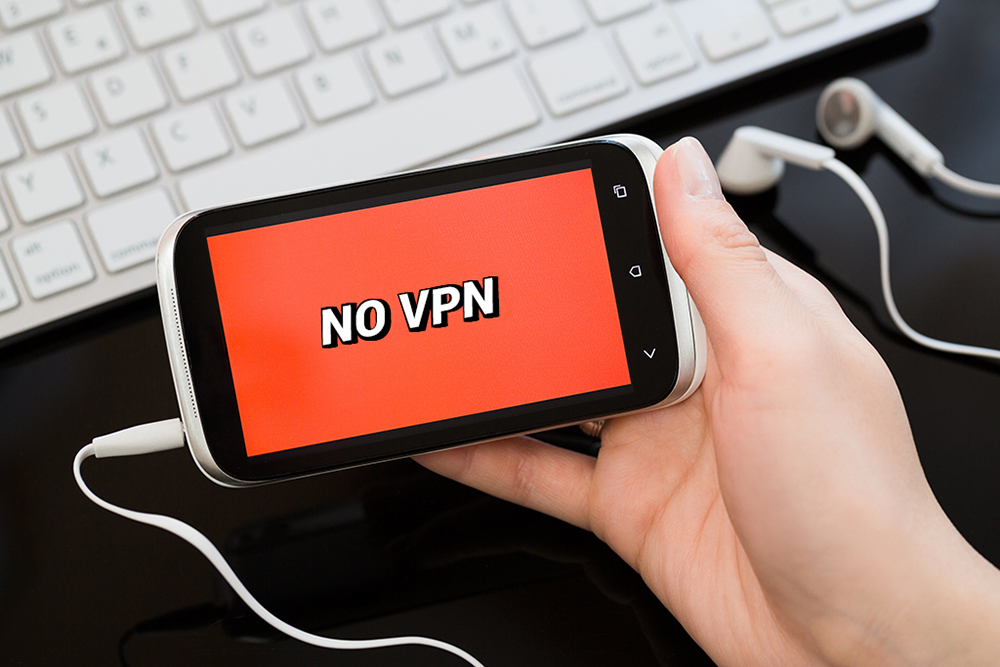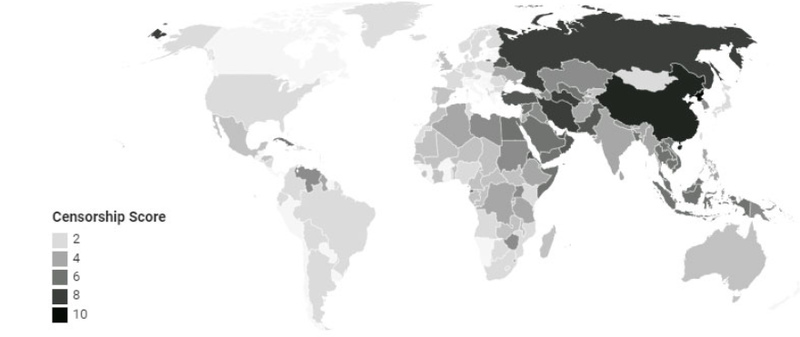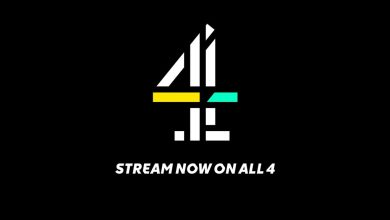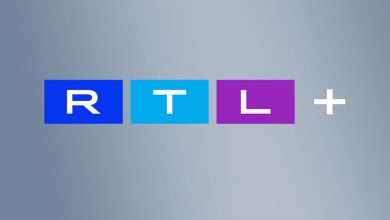Which Countries Restrict or Ban VPN Usage


- Services that block VPN IP addresses
- Government-approved VPN services
- Countries that ban VPNs
- How Governments ban VPNs
- VPN ban workarounds
The use of virtual private networks (VPNs) is growing worldwide. And with the rise of cybercrime, Internet surveillance, and online restrictions, these tools are now ever so important. However, some places limit VPN usage, meaning you won’t be able to unblock any website you want. Elsewhere, VPN connections are illegal and banned.
Still, these services are legal in most countries worldwide. But even there, you may not have total Internet freedom. Streaming platforms like BBC iPlayer and Hulu use geo-blocking to prevent you from accessing their content from abroad. That’s because they only have rights to broadcast shows inside their respective territories.
Furthermore, these services ban the majority of VPN IP addresses, meaning you can’t unblock them even if you use a VPN. Only a handful of the best VPN providers can bypass their restrictions.
Several countries completely ban the use of VPN, which in most cases goes hand in hand with broad online censorship, even without a VPN. You could land in trouble or face legal action if you use a VPN when you visit these countries. Therefore, it’s good to know where VPN usage is legal and where restrictions apply.
Why Some Countries Ban VPNs?
Internet access isn’t identical across the world. Some countries have strict online censorship, restricting or banning websites of certain nature for political, religious, and cultural reasons. Meanwhile, virtual private networks are tools that hide online activities and boost Internet freedom.
They reroute your traffic through their server network and encrypt it so no one would see what you’re up to. Furthermore, they help users bypass geo-blocks and avoid online censorship. That is why a lot of countries forbid their use.
- Surveillance: In most totalitarian regimes, the government wants to keep close tabs on what citizens do online, i.e., the websites they visit or social media posts. VPNs prevent them from monitoring the Internet, which is why they are banned.
- Censorship: VPNs help you avoid online restrictions that the authorities impose on websites that promote gambling, adult content, or even politics. But by banning VPNs, residents would no longer be able to find a way around these websites.
- Financial gain: Video call platforms have diminished the profits that telecom companies used to make from phone calls and SMS messages. Therefore, countries where the mobile operators are state-owned, like the UAE and Oman, ban these services to keep making money. Using a VPN allows you to keep making free VoIP calls so some governments ban them.
Countries with Government-Approved VPNs
There are governments across the world that do not impose complete bans on VPNs. Instead, they allow certain VPN services to operate on their soil under certain conditions. Other countries offer VPN services developed by state-owned entities. Evidently, these products aren’t much help if you want online privacy.
Nonetheless, having a number of approved VPN providers is better than having no VPNs at all. Below, you’ll find a list of countries that allow the use of VPNs in a restrictive manner.
China
The Great Firewall of China blocks all sorts of websites, from Google and YouTube to Facebook and Twitter. And since VPNs are tools for online privacy and bypassing restrictions, it’s only natural for a country with high Internet censorship like China to enforce strict terms on VPNs.
Any brand that operates inside China must comply with the government’s requests, which usually involves data surveillance and logging. Using unauthorized VPNs can lead to $145 fines. And depending on where you work in the country, that could be a large sum.
Russia
Russia has similar restrictive legislation in the field of VPN usage, which aims to block certain content that is deemed unlawful. That means VPN companies must play ball with the country’s communications watchdog, Roskomnadzor and block blacklisted websites. If they don’t comply, their services would no longer be operational in Russia.
In other words, VPNs are still allowed in the country, but only those that connect their systems to Roskomnadzor’s list of banned websites.
Iran
The only legal VPNs in Iran are the ones that the government approves. People who use unauthorized services could face persecution from the authorities, including legal action.
United Arab Emirates
According to UAE law, residents can only use legal VPN services that the government allows. As you may know, the country bans VoIP services like Skype and WhatsApp Calling, which is the main reason why people use VPNs in the first place. As long as you don’t use VPNs to commit crimes and illegal activities, then you shouldn’t have any problems with the law.
But if you commit illegal activities, punishments can include hefty fines or even imprisonment.
Oman
Just like the UAE, the Sultanate of Oman prohibits video call services. But unlike its Gulf peers, it does not permit VPN usage for individuals. Only public and private companies can connect to virtual private networks, but the government has to permit it first. Those who break the law can face hefty fines worth $1,300.
Turkey
Turkey started a crackdown on VPN services and social media platforms in the past few years. The country also restricted access to the Tor network and browser. However, there is still no law against VPN usage and some services still work.
Uganda
After introducing a controversial tax on social media platforms, Ugandans rushed to subscribe to VPN services in an attempt to dodge this additional fee. The new tax charges 200 Shillings (around $0.05) per day to anyone who wishes to access the likes of Facebook, WhatsApp, and Instagram. And to make sure no one tries to avoid paying, the government banned the use of VPNs.
“We have technology that will block the VPN services so that no one dodges the taxes.”
The Uganda Communications Commission
Countries with Full Ban on VPN Usage
Although complete bans on VPN use are in force in certain countries, local citizens and organizations still find ways to use a VPN to connect to the outside world. Nevertheless, you should be aware that this is risky in most of the countries listed below.
- North Korea barely has any Internet. Information about this country is hard to come across, but one thing is for sure, few people have access to the World Wide Web. All these users are part of the government. Regular citizens can access North Korea’s version of the web, a state-owned Intranet that only has 28 websites.
- Turkmenistan does not need to ban VPNs officially, as the country has only one government-run Internet service provider and one mobile operator. All online traffic goes through its lines. Nonetheless, individual users face administrative penalties if they get caught using a VPN.
- Iraq is another country that bans VPNs completely along with blocking social media sites, especially after the rise of ISIS. Nonetheless, many Iraqis, as well as local organizations, still use VPN services to bypass certain online content restrictions.
- Belarus is attempting to block all traffic that goes through VPN servers as well as services like Tor. Use of VPNs leads to possible fines while the government censors the content of multiple foreign websites or blocks access to them.
Countries with the Worst Internet Censorship


How Governments Implement a VPN Ban
Now that you know which countries have strict Internet censorship, perhaps you’re curious how governments and ISPs detect you’re using a VPN. After all, these tools encrypt your traffic and hide your ISP address so that no one can monitor what you do. Still, there are advanced technologies that help identify VPN usage and accordingly block it.
- Blocking VPN websites: The easiest way to prevent people from downloading VPNs is by removing their apps from Google Play and the App Store. Furthermore, some countries ban VPN websites so that you can’t install them on your browser or set them up on other devices manually.
- Blacklist VPN IP addresses: Just like streaming platforms can blacklist VPN IP addresses and stop them from accessing their content from abroad, so can the authorities. They won’t be able to view your actual IP address or pinpoint your location, but they can figure out that you’re using an IP provided by a VPN service.
- IP blocks: Your Internet service can limit the number of IP addresses assigned to your device. Once it discovers that you’re regularly switching IP addresses, it will figure out you’re using a VPN and block it.
- Deep packet inspection: The most advanced method to flush out VPN usage and block it is via inspecting the data packets that travel from each source. When ISPs see that the information is encrypted, they’ll know that a VPN is in use and block it.
- Port blocking: The standard port for web traffic is port 80. By blocking it, ISPs can prevent users who use VPNs. However, this method is ineffective if you’re using a reputable VPN service that allows you to configure ports and protocols.
VPN Ban Workarounds
Despite all these methods and technologies, you can still prevent your Internet service provider from blocking your VPN. However, that might take a while as you’ll have to go through each step until you reach the one that works. Nonetheless, you’ll only have to do the heavy lifting once. Small price to pay to regain access to your VPN service.
- Use the Tor network: When you use the Tor browser, your data will get rerouted and encrypted three times as it passes through the Tor network. It also deletes your cookies and uses NoScript and HTTPS Everywhere plugins to prevent websites from viewing your browsing history.
- Change VPN traffic ports: As I mentioned earlier, your ISP can implement a VPN ban by blocking the standard port 80. Changing your VPN traffic port can help you avoid the block and reestablish a VPN connection. TCP port 80 or TCP port 443 are favorable alternatives.
- Create an SSHL tunnel: A secure Shell Tunnel will engulf your data packet with an extra layer of encryption so that ISPs won’t be able to tell if you’re using a VPN.
- Use Shadowsocks: A lot of VPNs that are still operational in China use Shadowsocks encryption protocol to bypass online censorship. The socks5 proxy will send your data through an encrypted tunnel that has firewall protection.
- Try an SSL/TLS tunnel: You can use a Secure Socket Layer (SSL) tunnel to add an extra layer of encryption to your connection. As a result, you might be able to hide the fact that you’re using a VPN from your ISP.
VPN Bans and Restrictions – Final Thoughts
North Korea is the only country with a complete ban and non-existence of VPN services. Other nations and markets like China or Russia restrict VPN usage, but you can still run several popular VPN services. And the authorities rarely impose fines or penalties on VPN usage.
What you should be aware of is that using a government-approved VPN anywhere in the world is risky, especially if you are sending and receiving sensitive information. An authorized VPN service might keep record of your online activities and monitor your messages. If you need to use such a VPN service, a good move is to take advantage of encryption tools to secure your communications.
Do you live in a country that censors the Internet? Can you use a VPN service to circumvent restrictions? Tell us all about it below.




Banned from using a VPN in Portugal.
MEO have started to ban some people but not all.
No my Proton VPN says the network has stopped the connection.